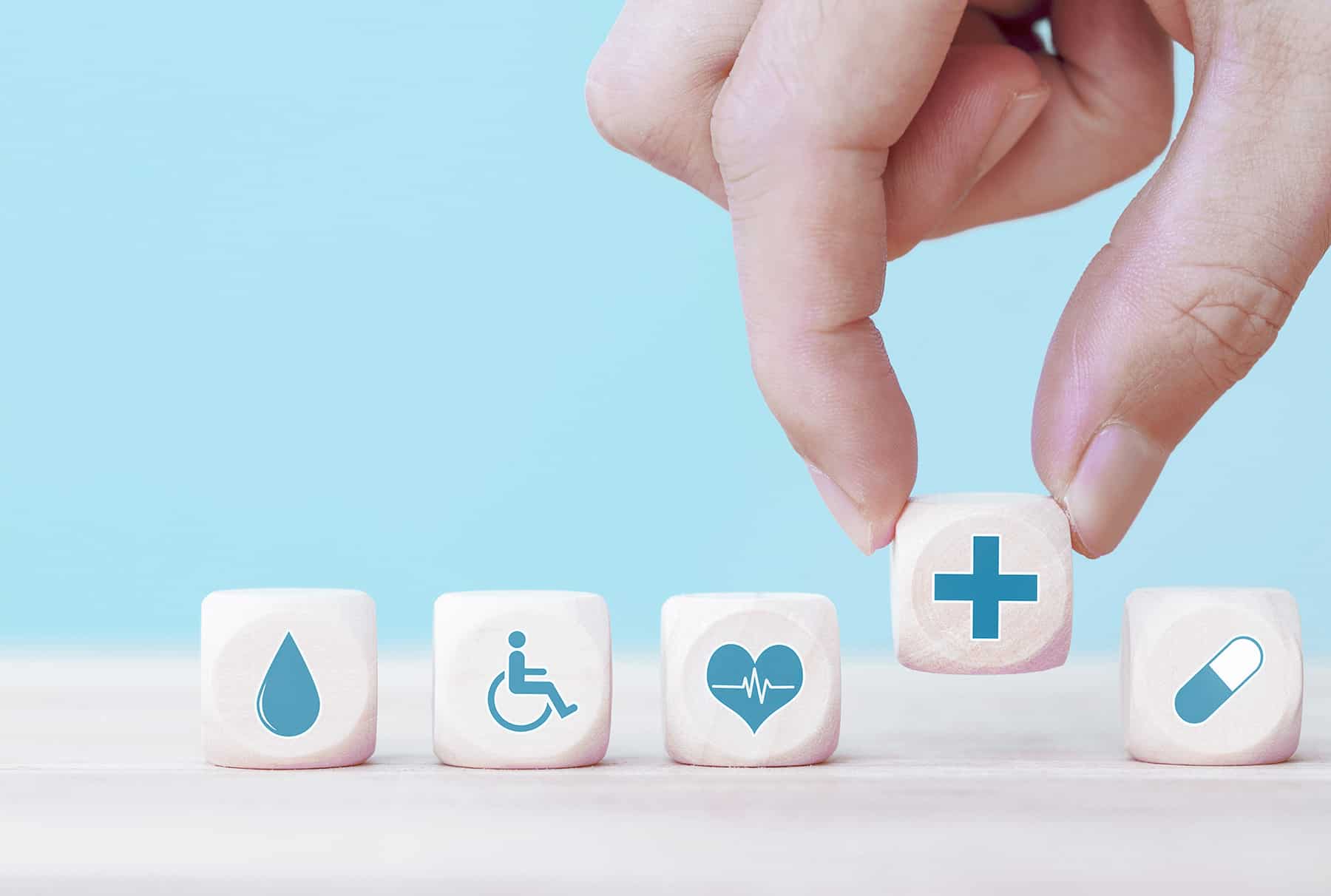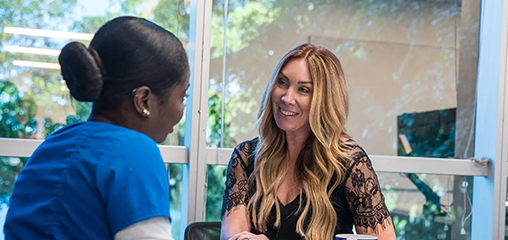
When people ask, “what do nurses do,” they’re often surprised to learn that nursing encompasses several different roles, each with distinct responsibilities and educational requirements.
From Certified Nursing Assistants (CNAs) who provide basic patient care and support, to Licensed Practical Nurses (LPNs) who handle more complex care tasks under supervision, to Registered Nurses (RNs) who assess patients, develop care plans, and coordinate treatment: the nursing profession offers multiple pathways into healthcare.

While all nurses share the common goal of caring for patients and supporting their health and recovery, the scope of practice, decision-making authority, and daily responsibilities vary significantly depending on education level and licensing.
Understanding these differences is crucial for anyone considering a nursing career, as each role offers unique opportunities to make a meaningful impact in healthcare settings ranging from hospitals and clinics to long-term care facilities and home health services.
What do nurses do during a typical workday?
If you’ve ever wondered “what are the responsibilities of a nurse,” the answer is a lot! While performing patient care responsibilities is the key priority, there are many other daily nursing tasks that you need to do before (or after) that for patients to heal and thrive.
Starting the shift: preparation and handoff
Preparation is key to everything. At the start of each day (or night shift), you have to go through a handoff, which is a critical part of every shift. It allows you and the outgoing nurse to review what happened in the prior shift. This conversation is packed with crucial information, such as the patient’s vital signs, medications (and their response to treatment), pending blood draws, and signs to watch out for, thus setting the tone for safe continuity of care.
This handoff also helps you plan your approach throughout the day. Some patients may need to be assessed first, while some may need time-sensitive preparations for a certain procedure. In a nutshell, handoff can help you get organized for the busy day of medication administration, procedures, documentation, and everything else in between.
While you may have your own style of taking down handoff notes, experts recommend using standardized communication tools, such as SBAR (Situation, Background, Assessment, and Recommendation), coupled with checklists for consistency (and to serve as a visual reminder), and/or electronic health records.
Direct patient care throughout the day
When we talk about “what do nurses do,” know that at the heart of all the duties and responsibilities of a nurse is direct patient care. These include:
- Vigilant monitoring (vital signs, pain, status changes, etc.)
- Administering medications
- Drawing blood samples
- Performing wound care
- Assisting patients with meals or mobility
- Preparing/assisting in procedures
- Supervising LPNs and/or CNAs
- Documenting care
- Preparing/setting up medical equipment
While these physical tasks make up most of a nurse’s day, nurses also function as educators who have to explain the treatment plan to the patient and their family members. They also work as advocates who establish rapport with their patients for more effective care.
Problem-solving and critical thinking moments
A nurse’s day is never without unexpected challenges. An otherwise stable patient’s status may quickly deteriorate, or life-saving equipment may begin malfunctioning unexpectedly.
This is where problem-solving and critical thinking skills come into play. Critical thinking is all about identifying a problem, determining the solution, and implementing the best method to resolve the issue.
Teamwork is also essential for these high-pressure moments. Nurses have to work with doctors, therapists, and other team members to help solve problems and stabilize the patient.
How do nursing job duties differ by healthcare setting?
Nursing is a dynamic profession where no two settings are the same. While patient care responsibilities remain central, nursing career duties can vary widely depending on where you work. Whether it’s a fast-paced emergency department (ED) or a steady, predictable outpatient clinic, it’s crucial to adapt your skills according to the nursing work environment.
Hospital nursing environments
Hospital nursing work often includes caring for patients around the clock, but nursing job duties can vary by unit.
On the medical-surgical floor, for example, nursing duties include monitoring vital signs, administering medications, and coordinating with a care team. Here, nurses usually look after multiple patients and focus on care delivery and recovery support.
In the intensive care unit (ICU), responsibilities are more ‘intensive’. Compared to floor nurses, ICU nurses have fewer patients—one to two at a time. Even though this is the case, these patients require more vigilant monitoring and life-saving interventions. As such, ICU nurses need to have amazing attention to detail—and advanced nursing skills to boot.
Operating room (OR) nurses specialize in pre-, intra-, and post-operative care. Tasks include preparing the OR, assisting the surgical team, and managing surgical instruments/supplies.
Meanwhile, labor and delivery nurses provide the unique care needed during pregnancy and childbirth—such as monitoring the baby’s heart rate and assisting in the delivery.
Then there’s the fast-paced and unpredictable ED, where nurses have to triage and make quick decisions to stabilize patients. They perform the same tasks as other nurses, like assessing the patient and administering medications, but they have to do so in a swift yet accurate manner, due to the volume of patients coming in.
Clinic and outpatient nursing career duties
So, what do nurses do in the clinic or outpatient setting? Nurses here work office hours (mostly with weekends off) and focus more on prevention, disease management, and patient education. The daily nursing tasks often include health screenings, vaccinations, and assisting with elective or minor procedures, to name a few. As such, this setting is ideal for those who prefer a slow yet steady pace or less demanding work.
Because of their duties, clinic or outpatient nurses often develop strong relationships with their patients over time. They usually become the patients’ trusted guides, as they continue to help them understand their issues and navigate their care plans efficiently. Because of this, great communication skills and particular attention to detail are must-haves for clinic or outpatient nurses.
Specialty nursing work environments
Apart from the hospital and outpatient/clinic settings, nurses can bring their expertise to other specialty environments, such as home health nursing. If you’re wondering, “what do nurses do in these environments,” it’s the same: assessments, medication administration, and wound care, to name a few—but in the comfort of the patient’s home.
There’s also school nursing, which focuses on the health and well-being of students. Tasks often include performing health screenings, monitoring immunization status, and directly caring for sick students.
Correctional nursing, meanwhile, is all about caring for inmates within the prison system. The typical nursing duties and responsibilities apply, such as performing assessments, administering medications, and providing emergency care.
This modern day and age has also led to the birth of telehealth nursing, where care is rendered virtually through video calls or mobile apps. This is particularly beneficial for patients who are home-bound or are located far from clinics and hospitals.
What are the most rewarding aspects of nursing job duties?
It goes without saying that nursing work is very challenging! From working long shifts to caring for patients with complex needs, most days can be physically, mentally, and emotionally demanding.
That said, each shift often comes with these heartwarming and rewarding moments that will remind you why you chose such a career:
- You get to see an improvement in your patient’s health (and they recover with your help)
- You make a difference in your patient’s low moments
- You receive immense gratitude from your patients and their families
- You perform a key role as a healthcare team member during your patient’s critical moments
- You learn new skills and enhance your clinical knowledge along the way
- You create meaningful connections with your patients and colleagues
What challenges do nurses face in their daily responsibilities?
Nursing shift work is a rewarding calling, but as with any type of healthcare career, it does come with some challenges. Each day, nurses must work through issues such as:
Managing time and patient loads
One of the biggest hurdles is managing time while you’re handling multiple patients. After all, you have to perform many nursing job duties and be able to quickly respond to unexpected events along the way.
Remember: managing time as a nurse can be likened to triaging patients. You have to prioritize and rank activities by importance and urgency. Setting and following a routine will also help you juggle your patient loads with ease.
Delegating tasks can also help you manage your time more effectively. For example, you can assign tasks such as taking vital signs, feeding, repositioning, and hygiene activities to unlicensed assistive personnel such as patient care technicians or nurses’ aides.
Handling difficult situations
Nurses often encounter emotionally intense moments in their units. You will most likely encounter an aggressive patient who’s having a mental health emergency, or an agitated relative who’s not satisfied with their family member’s care.
For these scenarios, you’ll have to use de-escalation techniques, such as:
- Listening carefully
- Communicating in a clear and calm manner
- Being respectful and supportive (“I know how hard that must have been for you”)
- Setting clear limits
- Maintaining non-threatening, neutral body language (open and relaxed posture, palms open and visible)
- Controlling how you react (calming yourself or taking a deep breath before responding)
- Minimizing lights and loud conversations
In some cases, you may also have to serve as a mediator between colleagues who are in conflict. To help resolve such conflicts, it’s best to:
- Try to understand the situation (listen to both sides)
- Seek the root cause of the conflict
- Promote open communication between parties
- Help find common ground and solutions that address the core problems
- Handle the conflict fairly
- Document the issue and steps taken
- Monitor the issue to prevent it from happening again
Administrative and documentation requirements
Nurses usually have to complete administrative requirements that extend beyond their daily nursing tasks. These may include attending unit meetings, completing modules, training new hires, and even plotting the staff schedule. Again, great time management skills will come in handy with this.
How do nurses manage the emotional aspects of their job duties?
The reality of nursing work is that it’s emotionally demanding as it is rewarding. The deterioration or the passing of a long-term patient, for example, can be emotionally draining. But to care for patients effectively, nurses need to take care of their emotional health and well-being as well.
That means:
- Taking a few minutes off in between patient interactions to ‘decompress’
- Doing deep breathing or mindfulness exercises during stressful situations
- Setting professional and emotional boundaries with patients
- Debriefing/discussing a difficult case with colleagues
- Seeking support from employee assistance programs or professionals as needed
It will also help to:
- Take care of your physical health (it’s closely tied to your emotional health) by eating healthy, working out, and sleeping well
- Perform self-care outside of work
- Check in with family and friends
Tip: Doing any of these for at least 10–15 minutes a day is enough to reduce stress!
What does work-life balance look like in a day in the life of a nurse?
While a nurse’s day is oftentimes intense, there are many ways to achieve work-life balance.
As a nurse, you have the option to work three 12-hour shifts in a week, which allows for more days off (consecutively, too, as long as the schedule permits) and more time to spend with family and loved ones. Additionally, this means more time to rest and recover, work on some hobbies, and even pursue an advanced degree!
If 12-hour shifts are too long for you, you can always opt for an 8-hour shift (such as those offered by clinics or outpatient departments). There’s also an option to do part-time, per diem, or weekend-only work, so you could always choose a schedule that best suits your situation.
Other work-life benefits
Another great thing about nursing jobs is that they often come with benefits that support work-life integration, such as retirement benefits, paid time off, childcare support, wellness or employee assistance programs, and tuition reimbursement.
In case you need to pull away from your nursing job to focus more on your personal life, the demand in the field often allows you to come back and work when you’re ready. According to the Bureau of Labor Statistics, there will be an average of more than 189,000 RN openings per year.
What misconceptions do people have about what nurses do?
While nursing is one of the most trusted professions, it’s typically misunderstood. The reality of nursing work is that it goes far beyond the stereotypes seen on TV or movies, where nurses are often portrayed as just following the doctor’s orders.
In reality, nurses work with healthcare providers, not for them. You are an advocate and educator who has to make your own independent clinical judgment.
Some think that nurses only perform basic care and that nursing is easy work, when in fact, nurses have to make complex, critical decisions for their patients every day.
Another misconception about nursing is that only minimal training is required. If you are seeking to become an RN, for example, you will need to get a degree, such as a Bachelor of Science in Nursing (BSN) or an Associate Degree in Nursing (ADN).
Most people also think that nurses are limited to hospital nursing work. As mentioned, there are many other facilities where you can flourish, such as a doctor’s office, a school, or a correctional facility. You also have the option to move out of bedside and work in Utilization Management or Case Management.
The Takeaway
The day in the life of a nurse is filled with many duties and responsibilities—from providing direct care to assuming the role of an advocate and educator. While hospital nursing work is a popular choice, there are many settings where you can provide care, such as a doctor’s clinic or a school.
Now that you know the answer to “what do nurses do?”, the nursing work reality shouldn’t prevent you from reaching your dreams. Nursing, after all, often brings a rewarding, fulfilling feeling you won’t find anywhere else.
About the Author
Raychel Ria C. Agramon, BSN, RN, MPM, has over 10 years of labor & delivery, mother-baby, and OB-GYN surgery nursing experience. Beyond her clinical expertise, Raychel has served on research ethics and quality improvement committees, taught allied health students, and worked as a freelance health writer and editor. Currently, she works in the healthcare insurance sector, where she educates and advocates for Medicare-age retirees.
Start Your Future in Nursing Today

If you’re considering a career as a registered nurse (RN), Arizona College of Nursing is here to help you pursue your dream. Our BSN program enables you to earn a Bachelor of Science in Nursing in just 3 years or less with qualifying transfer credits. We’ve helped hundreds of students to earn a BSN degree and enter the nursing profession – and we’re ready to support you on your path to becoming an RN.
Why Choose Arizona College of Nursing?
- Earn a BSN degree in 3 years or less with eligible transfer credits
- Campus locations throughout the US
- Night classes for general education courses
- Hybrid Online/In-Person format for general education classes
- Nursing education is all we do
- CCNE-Accredited Program*
- NCLEX-RN success coaches and exam preparation class
- Financial aid available to those who qualify
Discover Your Path to a Career in Nursing
Information in this post is accurate as of October 28, 2025.
*The Bachelor of Science in Nursing (BSN) degree program at Arizona College of Nursing is accredited by the Commission on Collegiate Nursing Education (https://www.aacnnursing.org/). All Arizona College of Nursing and Arizona College campuses are institutionally accredited by the Accrediting Bureau of Health Education Schools (https://www.abhes.org/), a U.S. Department of Education-recognized accrediting agency.








